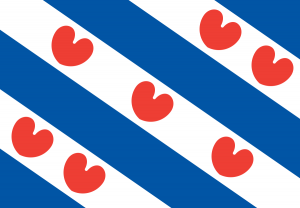Language/Western-frisian/Vocabulary/Seasons-and-Months
| ◀️ Describing Weather — Previous Lesson |
Introduction
In this Western Frisian lesson, you will learn the vocabulary related to seasons and months. You will also learn how to talk about seasonal activities or events. Understanding the basic vocabulary related to weather and seasons is essential for everyday communication. By the end of this lesson, you will be able to describe different seasons and months, and talk about related activities with ease.
After mastering this lesson, these related pages might interest you: Count to 10 & Greetings.
Seasons and Months Vocabulary
Here are the Western Frisian words for the four seasons:
| Western Frisian | Pronunciation | English |
|---|---|---|
| De winter | Template:IPA | Winter |
| De lente | Template:IPA | Spring |
| De simmer | Template:IPA | Summer |
| De hjerst | Template:IPA | Autumn/Fall |
And here are the Western Frisian words for the months of the year:
| Western Frisian | Pronunciation | English |
|---|---|---|
| Jannewaris | Template:IPA | January |
| Febrewaris | Template:IPA | February |
| Maart | Template:IPA | March |
| April | Template:IPA | April |
| Maaie | Template:IPA | May |
| Juny | Template:IPA | June |
| Júly | Template:IPA | July |
| Augustus | Template:IPA | August |
| Septimber | Template:IPA | September |
| Oktober | Template:IPA | October |
| Novimber | Template:IPA | November |
| Desimber | Template:IPA | December |
Note that the names of the months in Western Frisian are similar to the English names, with some spelling variations.
Talking about Seasonal Activities
Here are some phrases to talk about activities related to different seasons:
- In de winter... (In winter...)
- Ik ride graach op de rek en sjoch televyzje yn de winter. (I like to skate and watch TV in winter.)
- De dagen binne koarter yn de winter. (The days are shorter in winter.)
- Yn de lente... (In spring...)
- De beammen krije wer leaf yn de lente. (The trees get leaves again in spring.)
- Ik ferwizigje op tegearestelling yn de lente. (I do spring cleaning with my family in spring.)
- Yn de simmer... (In summer...)
- Ik gean graach swimmen yn de simmer. (I like to go swimming in summer.)
- De sinnige dagen meitsje my bliid yn de simmer. (The sunny days make me happy in summer.)
- Yn de hjerst... (In autumn/fall...)
- De blêden fan de beammen falle fan de beammen yn de hjerst. (The leaves fall from the trees in autumn/fall.)
- Ik bin net sa'n grutte leafhawwer fan it waar yn de hjerst. (I am not a big fan of the weather in autumn/fall.)
Months and Seasons in Practice
Here are some example questions and answers to practice using the vocabulary related to seasons and months:
Question: Yn hokker moanne binne dyn jonkje/sizzer/heit/ mem berne? (In which month was your son/daughter/father/mother born?)
Answer:
- Myn jonkje/sizzer/heit/mem is berne yn jannewaris. (My son/daughter/father/mother was born in January.)
Question: Wannear is dyn jierdei? (When is your birthday?)
Answer:
- Myn jierdei is yn septimber. (My birthday is in September.)
Question: Wat dochsto graach yn de simmer? (What do you like to do in summer?)
Answer:
- Ik gean graach swimmen en neam it strân yn de simmer. (I like to go swimming and visit the beach in summer.)
Question: Hasto in leafhawwer fan de hjerst? (Are you a fan of autumn/fall?)
Answer:
- Nee, ik bin net sa'n grutte leafhawwer fan it waar yn de hjerst. (No, I am not a big fan of the weather in autumn/fall.)
Conclusion
Congratulations! You have learned the Western Frisian vocabulary for seasons and months, and how to talk about seasonal activities or events. Make sure to try the sample questions to practice and improve your skills. Keep practicing and soon you will be able to have conversations about the weather and seasons with your Western Frisian-speaking friends and colleagues!
Great work on completing this lesson! Take a moment to investigate these connected pages: Common Hobbies & Animals.
Other Lessons
- Geography
- Education
- Introducing Yourself
- Common Foods
- Describing Relationships
- Health
- Modes of Transportation
- Describing Weather
- Clothes
- At the Restaurant
Sources
Template:Western-frisian-Page-Bottom
| ◀️ Describing Weather — Previous Lesson |

